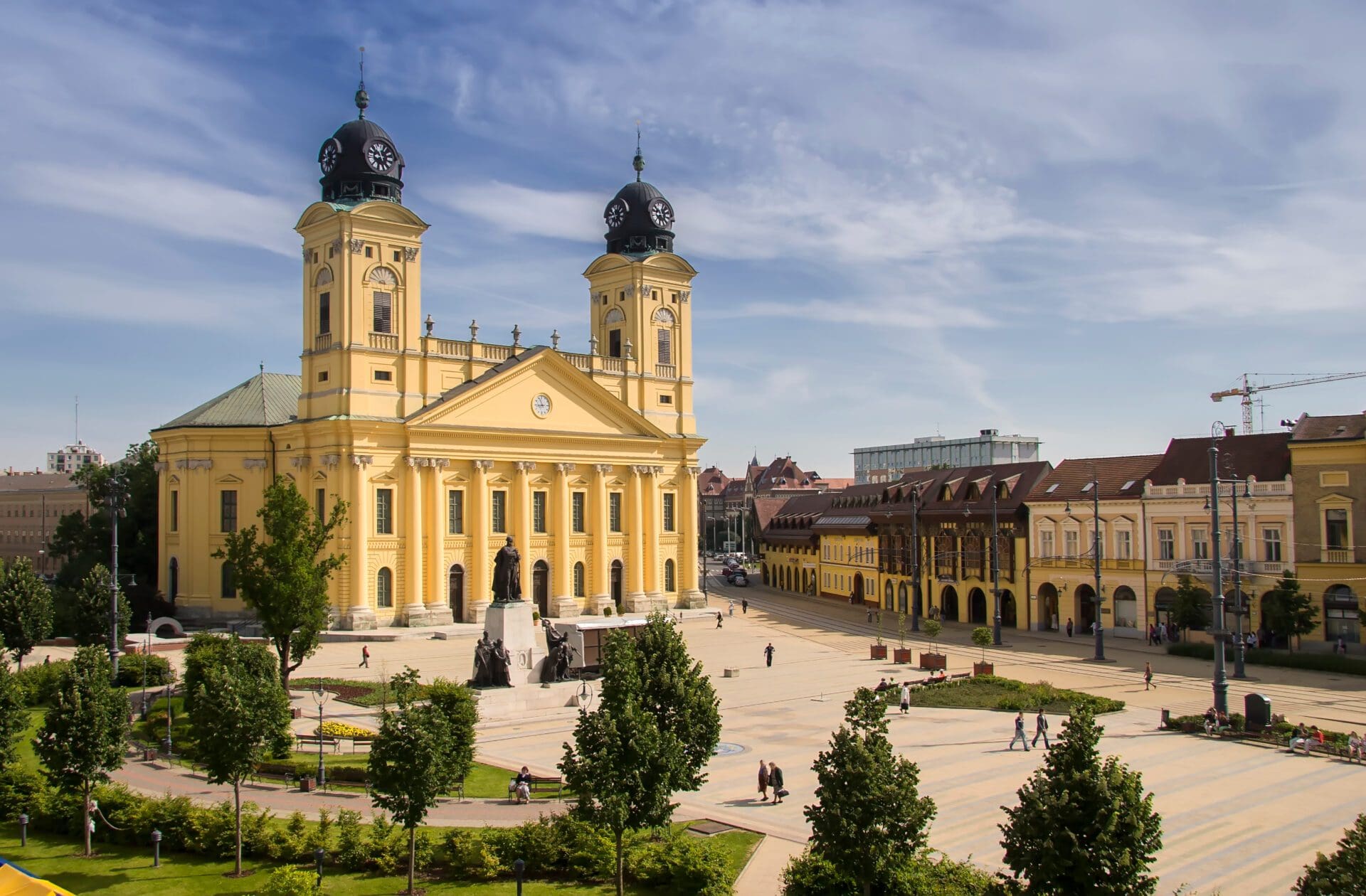The past year proved to be very lucrative for the city of Debrecen. The Eastern Hungarian city has won some of the largest FDI investments the country has secured over the past year. South Korean manufacturer of cathode materials for lithium batteries, EcoPro BM announced it would build its first factory in Europe in Debrecen (with a €700mn investment), and the Chinese battery company, Contemporary Amperex Technology Co. Limited (CATL) also chose the Hajdú-Bihar County seat for its greenfield investment. It is important to highlight that both the Koreans and the Chinese are investing in sustainable technologies that are related to the manufacturing of electric vehicles. According to the Financial Times, by 2030 battery production in Debrecen alone will rival every European country other than Germany. In a few years, Hungary is set to become a powerhouse for EVs. These investments not only help to create a more sustainable and environmentally friendly Hungarian economy, but
they also reduce the Hungarian economy’s dependency on the production of internal combustion engines.
The unparalleled series of major investments in Debrecen was started by the German auto manufacturer BMW. Not long after BMW announced a €1 billion investment in the city, CATL (that first considered Serbia or Poland for its megafactory) also settled for Debrecen. CATL’s production facility will have the capacity to power 2mn new cars a year and it is expected to employ around 9,000 people. The Hungarian government has committed to support the Chinese company’s investment with a generous €800mn worth of tax breaks and infrastructural support. Since CATL supplies BMW with the batteries for its premium electric vehicles, BMW announced that it will further expand its plant in Debrecen to include a battery assembly facility as well. The BMW battery assembly facility will be over 140,000 square metres in size, and it will create 500 new jobs in the regional centre. Overall, BMW is about to invest €2 billion in the Eastern Hungarian city—the third biggest investment in the country’s history. According to the plans announced so far, the Debrecen BMW factory is scheduled to start operation in 2025 and will have the capacity to produce 150,000 cars a year.
The transformation of the city of Debrecen as well as of the Hungarian economy is especially significant
as the era of petrol and diesel cars is coming to an end—they are to be phased out in the EU from 2035, due to environmental concerns. Therefore, the moving away from internal combustion engines to the production of electric vehicles in Hungary is happening at the right time and will contribute to the sustainability of manufacturing as well as to the long-term growth of the economy. Currently, the automotive industry accounts for around eight per cent of Hungary’s GDP and one fifth of the country’s exports, so it is vitally important keep those production capacities in the country. The investments in the city of Debrecen demonstrate that Hungary can successfully implement structural changes in its industry to promote economic sustainability, and thus contribute to the building of a greener future.








